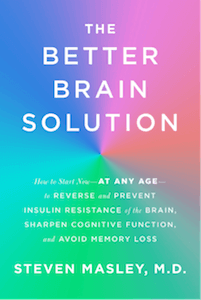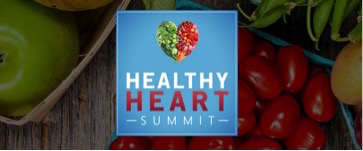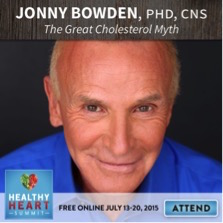My friend and colleague, Dr. Steven Masley, has developed a groundbreaking book and wellness program, The Better Brain Solution (my Amazon affiliate link) with a release date of January 2, 2018.
The Better Brain Solution is based on what he sees in his clinic and is supported by research published by Dr. Masley and his colleagues: Lifestyle Markers Predict Cognitive Function
Published data from his clinic shows that we can improve executive function and brain processing speed by 25-30%, with the 5-step plan he developed, focused on adding the right foods, nutrients, activity, stress management, and toxin avoidance. As insulin resistance is the primary cause for cognitive decline and losing brain processing speed, he believes this approach can help prevent at least 60% of dementia and Alzheimer’s disease.
Dr. Masley also writes about partial intermittent fasting for improving cognitive performance:
Recent studies have shown that partial intermittent fasting can be as effective—and sometimes more effective—in improving cognitive performance than traditional fasting; plus it also improves blood sugar control. Avoiding calories (especially carbohydrates) for at least fifteen to eighteen hours will initiate ketone formation and shift fuel usage from glucose (sugar) to ketones (a molecular by-product of fat-burning). The brain’s energy-producing factory, the mitochondria, then uses those ketones for fuel. Simply put, in ketosis, cells convert fat rather than sugar into energy, and the brain seems to like that.
And he reviews these partial intermittent fasting options, recommending #1 as the easiest one to follow for most:
- Fasting overnight for 15–18 hours (basically skipping breakfast) 2–3 days per week
- Very-low-carb fasting every other day
- Very-low-carb fasting 4–5 days per month
The MCT oil and coconut oil discussion is a valuable one but if caffeine is an anxiety trigger for you, simply skip the coffee and MCT oil/cream recommendation. He has a section for ApoE4 genotypes and it’s worth mentioning this here as it has come up on previous blog posts. Dr. Masley’s advice:
Keep to a modest intake of saturated fat from animal protein and dairy products. Because ApoE4 genotypes are less able to utilize MCT fats effectively as fuel, you have less reason to use MCT oil, coconut oil, and other coconut products.
There is an entire chapter on valuable nutrients. Here is a snippet on curcumin from the book – showing both cognitive and mood benefits:
Beyond its anti-inflammatory, arthritis-relieving, antioxidant, and cancer-fighting properties, curcumin has been studied for its effects on cognitive decline. The challenge is that original forms were poorly absorbed, while larger doses (which might be the most effective for addressing cognitive decline) have caused significant gastrointestinal symptoms.
Recently, improved curcumin formulations have been introduced, with much better rates of absorption and gastrointestinal tolerability. One study that used these newer forms of curcumin has shown improved cognitive function. Dr. Katherine Cox and her Australian research team evaluated 60 healthy adults (without memory loss), age sixty to eighty-five. Subjects were randomized to receive 400 mg of a well-absorbed curcumin formulation and a placebo, and sophisticated measures were used to assess their cognitive function pre-and post-therapy. Even after only three hours, researchers noted improved cognitive function with curcumin, but none in the control group. After four weeks, those receiving curcumin showed better cognition, plus subjects reported more energy and less anxiety.
Additional studies in humans have shown that giving curcumin decreased blood levels of beta-amyloid (the brain protein associated with Alzheimer’s disease); and in mice, giving curcumin enhanced hippocampal neurogenesis (regeneration of brain cells), helping to increase the size of the brain’s memory center.
In particular, its anti-inflammatory and antioxidant activity shows promise for high-risk individuals with ApoE4 genotypes, but that is yet to be proven. For now, I’m going to keep taking curcumin for my joints, with the hope it will protect my brain as well.
In the chapter on toxins and brain health, Dr. Masley discusses inorganic copper:
Only recently has copper emerged as a risk factor for Alzheimer’s, and the data are startling. In animal studies, giving mice inorganic copper supplements (also called copper-2 or divalent copper), compared to giving a placebo, caused increased beta-amyloid production in the brain, plus an elevated rate of Alzheimer’s disease. If you recall, beta-amyloid is the sticky protein that overaccumulates in the brains of those with Alzheimer’s disease.
Researcher and physician George Brewer, M.D., MACN, has studied the relationship between inorganic copper intake and the dramatic recent increase in Alzheimer’s rates. He draws a very strong relationship between copper pipes used in home plumbing and the rapid rise in Alzheimer’s rates in the United States.
Keep in mind that for some individuals, even organic copper can be an issue when it comes to anxiety (this is not discussed but is my contribution to the discussion).
And some additional comments from me: if you’ve been following me for some time, you know I support the mental health research showing that grass-fed red meat is beneficial to consume more than only once a week. I also say no to tuna and sword-fish especially if you suspect mercury issues are a factor in your anxiety or cognitive issues. I would also like to point out that benzodiazepines are not mentioned despite the research showing the role it may be playing.
I truly value the work of Dr. Masley and this book is wonderful for improving cognitive function (and even depression). I also really like the perspective he brings as a heart doctor and chef, the research that is woven in to the book and his advice, as well as the fun factor he teaches, like learning a new language!
In advance of the release of his book he is offering the following:
- The Brain Symptom Quiz When you get your results you will receive Dr. Masley’s Better Brain Shopping Guide – The top 12 foods to boost your brain and the critical foods to avoid! Be sure to look out for his special offer that includes a copy of his new book.
- A sneak 3-video advanced viewing of the March 2018 PBS show
If you’d just prefer a copy of the book you can also pre-order here: The Better Brain Solution – How to Reverse and Prevent Insulin Resistance of the Brain, Sharpen Cognitive Function, and Avoid Memory Loss (my Amazon affiliate link)
Feel free to ask questions or comment below.



